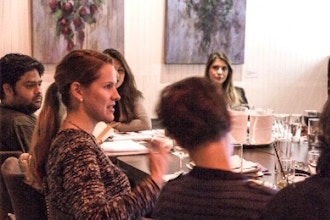Al-Andalus: Tolerance, Culture, and Violence in Spain
- All levels
- 21 and older
- $315
- 15 W 16th St, New York, NY
- 12 hours over 4 sessions
Thankfully we have 2 other History Classes for you to choose from. Check our top choices below or see all classes for more options.
Fragrance Alliance Network @ 134 W 29th St, New York, NY
Embark on a fragrant journey through France's perfume history. Uncover the industry's evolution from the Renaissance to the 19th Century. Delve into Versailles' secrets and discover the roots of modern fragrance.
Apr 20th
4–6pm EDT
Meets 3 Times
Brooklyn Institute for Social Research @ 68 Jay St, Brooklyn, NY
Delve into the profound intersections of race, class, and capitalism in a thought-provoking exploration of contemporary radical movements. Join us for an in-depth examination of Cedric Robinson’s concept of racial capitalism and its implications for understanding modernity, nationalism, and Black Radicalism. Uncover the complexities of these interwoven systems through close readings and discussions led by expert scholars at the Brooklyn Institute for Social Research.
May 8th
6:30–9:30pm EDT
Meets 4 Times
In any event where a customer wants to cancel their enrollment and is eligible for a full refund, a 5% processing fee will be deducted from the refund amount.

People who viewed this class also viewed the following classes
Get quick answers from CourseHorse and past students.
The Brooklyn Institute for Social Research was established in 2011 in Boerum Hill, Brooklyn. Its mission is to extend liberal arts education and research far beyond the borders of the traditional university, supporting community education needs and opening up new possibilities for scholarship in the...
Read more about Brooklyn Institute for Social Research

This school has been carefully vetted by CourseHorse and is a verified NYC educator.

Brooklyn Institute for Social Research
Union Square, Manhattan
15 W 16th St
Btwn 5th & 6th Avenues
New York, New York 10011 Union Square, Manhattan
15 W 16th St
Btwn 5th & 6th Avenues
New York, New York 10011
Booking this class for a group? Find great private group events



More in Life Skills




Get special date and rate options for your group. Submit the form below and we'll get back to you within 2 business hours with pricing and availability.